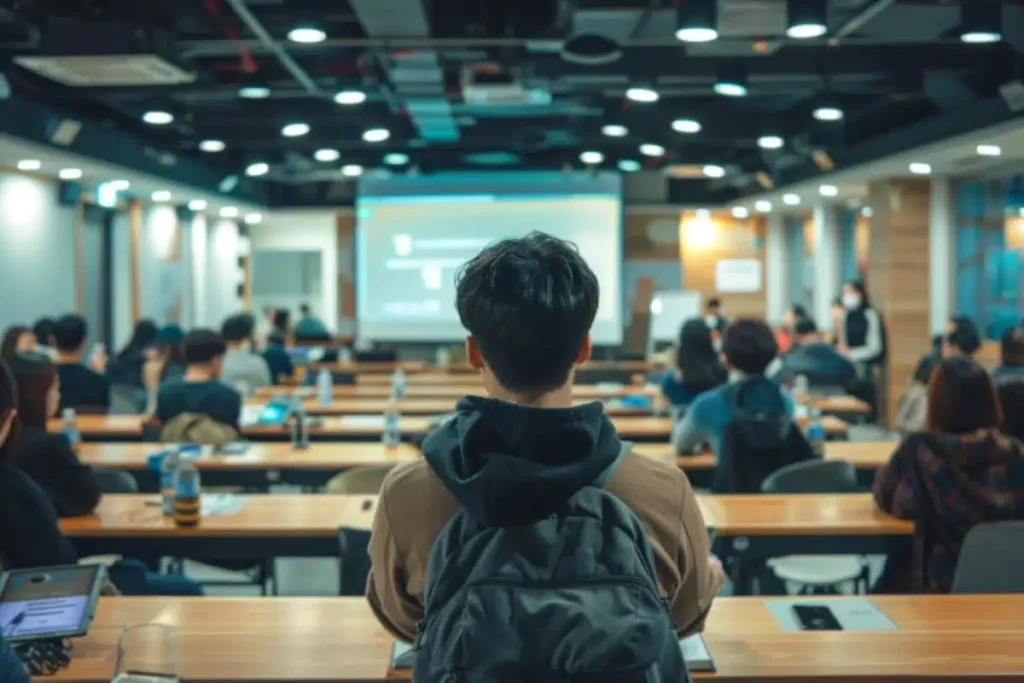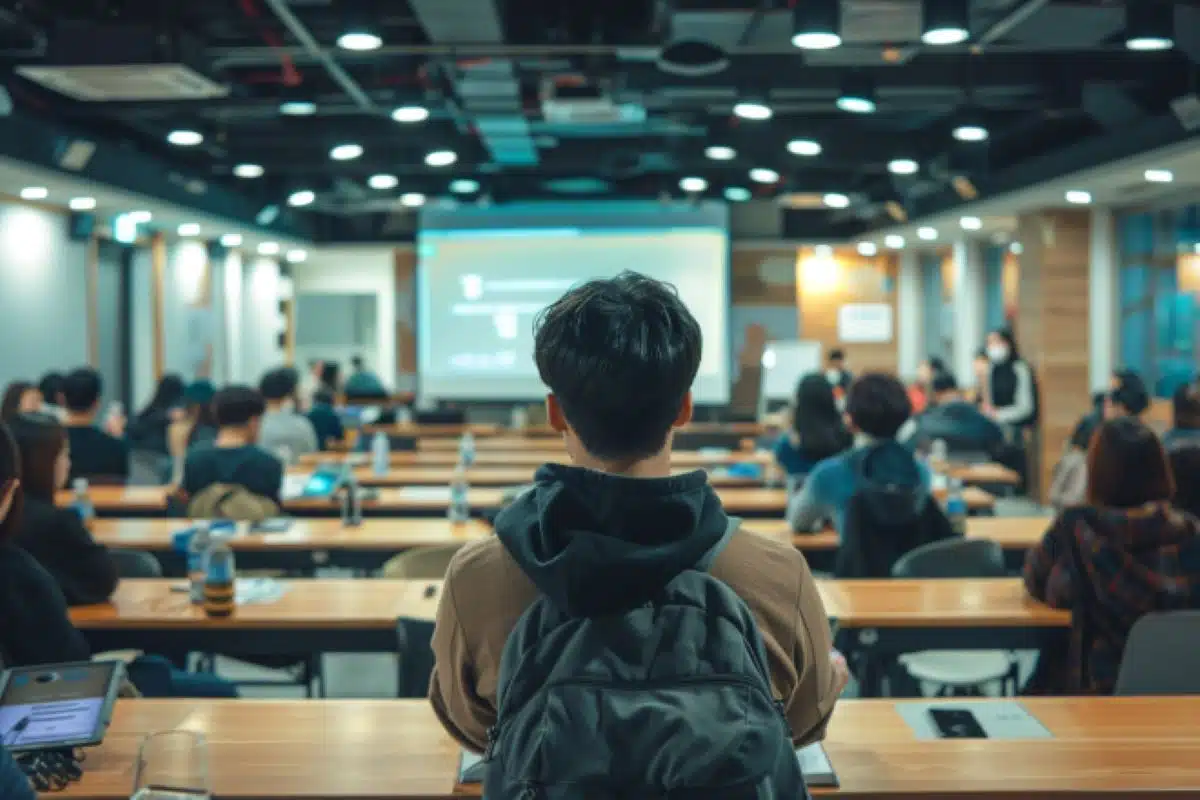OpenAI, ChatGPT Edu, higher education AI, university AI integration, GPT-4o, academic AI tools, AI in education, university AI applications, AI data analysis, AI security in education
Discover how OpenAI’s ChatGPT Edu, powered by GPT-4o, is transforming higher education. Learn about its versatile applications, successful implementations at prestigious universities, and robust security features. Explore how ChatGPT Edu can enhance academic and operational efficiency in educational institutions worldwide.

In a groundbreaking move to enhance the integration of artificial intelligence (AI) in higher education, OpenAI has unveiled ChatGPT Edu. This specialized version of ChatGPT is powered by the advanced GPT-4o, tailored specifically for universities to responsibly incorporate AI into academic and campus operations. With its robust capabilities in text and vision reasoning, data analysis, and enterprise-level security, ChatGPT Edu is set to transform the educational landscape.
A New Era of AI in Academia
ChatGPT Edu builds upon the successes observed at renowned institutions such as the University of Oxford, Wharton School of the University of Pennsylvania, University of Texas at Austin, Arizona State University, and Columbia University. These universities have already showcased the significant impact of AI on improving educational outcomes and operational efficiencies through ChatGPT Enterprise. Now, with ChatGPT Edu, OpenAI aims to extend these benefits more broadly across the academic sector.
Versatile Applications Across Campus
The versatility of ChatGPT Edu makes it an invaluable tool for various academic tasks. Its applications span across personalized tutoring, resume reviews, grant application drafting, and faculty support in grading and feedback. Here are some innovative implementations:
Columbia University
At Columbia University, Professor Nabila El-Bassel’s team employs a custom GPT to analyze extensive datasets. This has significantly accelerated their research on community-based strategies to reduce overdose fatalities. By leveraging AI, the team can process and interpret data more efficiently, enabling them to focus on actionable insights and interventions.
Wharton School of the University of Pennsylvania
At the Wharton School, Professor Ethan Mollick has integrated ChatGPT into his courses to enhance students’ reflective learning experiences. Students engage in deep, meaningful conversations with a GPT trained on course materials, facilitating a more immersive and interactive learning environment. This approach not only aids in comprehension but also encourages critical thinking and application of knowledge.
Arizona State University
Assistant Professor Christiane Reves at Arizona State University has developed a Language Buddies GPT to facilitate German language conversations tailored to students’ proficiency levels. This innovative use of AI optimizes language learning, providing personalized practice that saves faculty time and enhances student outcomes. The Language Buddies GPT is an excellent example of how AI can support individualized learning pathways in higher education.
Bringing AI to the Forefront
To scale these benefits, ChatGPT Edu offers universities an affordable and secure way to integrate AI. Its features are designed to support advanced academic and operational tasks while ensuring data privacy and security. Key features include:
Advanced Capabilities
ChatGPT Edu provides access to GPT-4o, which excels in text interpretation, coding, and mathematics. Additionally, it includes tools for data analytics, web browsing, and document summarization. These capabilities enable users to handle complex academic tasks efficiently and accurately.
Customization and Sharing
Universities can build and share custom GPT versions within their workspaces. This allows for tailored AI solutions that meet specific institutional needs, fostering a collaborative and innovative academic environment.
Enhanced Communication
ChatGPT Edu supports over 50 languages, with improved quality and speed. This feature is particularly beneficial for institutions with diverse student populations, promoting inclusivity and accessibility.
Robust Security
Ensuring data privacy is a top priority for OpenAI. ChatGPT Edu includes administrative controls such as group permissions, Single Sign-On (SSO), System for Cross-domain Identity Management (SCIM), and GPT management. These features provide enterprise-level security, safeguarding sensitive information and maintaining compliance with institutional policies.
High Usability
Compared to the free version of ChatGPT, ChatGPT Edu offers significantly higher message limits. This enhancement ensures that users can engage in extended and uninterrupted interactions with the AI, supporting comprehensive academic and operational tasks.
A Scalable Model for Educational Transformation
As Kyle Bowen, Deputy CIO of Arizona State University, states, “Integrating OpenAI’s technology into our educational and operational frameworks accelerates transformation at ASU. We’re collaborating across our community to harness these tools, extending our learnings as a scalable model for other institutions.” This sentiment reflects the broader potential of ChatGPT Edu to revolutionize higher education on a global scale.
Conclusion
ChatGPT Edu represents a pivotal step in making AI accessible and beneficial for educational institutions worldwide. Its powerful capabilities, successful implementations, and robust security features make it an ideal tool for enhancing academic and operational efficiency. By providing universities with a scalable and customizable AI solution, OpenAI is driving a new era of educational innovation. Interested institutions are encouraged to contact OpenAI’s team to learn more about this groundbreaking initiative and explore how ChatGPT Edu can support their academic goals.
In conclusion, OpenAI’s introduction of ChatGPT Edu marks a significant advancement in educational technology. By harnessing the power of AI, universities can improve student outcomes, streamline operations, and foster a more engaging and inclusive learning environment. With ChatGPT Edu, the future of higher education looks brighter than ever.
Read More-
